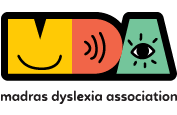
Early Intervention and role played by care givers
Early Intervention
Early intervention is a term that refers to the array of activities designed to enhance a young child’s development. Pre-primary education is defined as the initial stage of organized instruction,
designed primarily to provide a bridge between home and a school-based atmosphere. Eventually it lays a foundation for formal future learning.
Learning is an automatic process. Despite exposure and reinforcement, if a lag is observed over a period of time, it is likely to hamper future learning. At this stage, intervention is vital to fill in the gaps. Learning disabilities show subtle warning signs, however they may be observed from a very early age.
Ideally, early intervention starts with a comprehensive assessment of the child’s background, strengths and needs. It extends through the provision of appropriate supports and services, including active monitoring and re-evaluation as the child grows.
Thus early intervention thus creates a recognition and respond system to enable and empower children and parents.
The role of pre-primary education is to ensure that all children are able to develop their cognitive, linguistic, motor, social, emotional, sensory and physical skills to the best of their abilities. This
is a time where the pre-skills for reading, writing, numeracy etc are mastered in a concrete form, setting a base for future abstract learning.
Its often said that it takes a village to raise a child, and it cannot be more true. While the parents are the primary caregivers and are ultimately responsible for the well being of their child, the role of the paediatrician is a critical one, especially in the early years. They are primarily responsible for the physical health and nutritional health of the child. They are also the first person a parent reaches out to when they need help with the child. It then becomes very essential that the pediatricians be aware of learning disorders and what the early indicators are. Very often they only look at the child medically and ignore developmental red flags if any.
The next very important group of people in the lives of a child are teachers and educators. A child, by the time they’re in primary school end up spending more of their waking day with teachers in school, than with their parents. It is very important then for this group to be well aware of developmental milestones and what a difference in them could mean. They need to be alert and observant as that will in most cases be the ones spotting these developmental differences in the child.
Finally the role of the parents is most critical, they provide the child with everything that is needed for their development across all areas. The health and nutritional needs of the child are entirely in the hands of the parent. Ensuring the child gets enough sleep, eats healthy nutritious food, has opportunities to play, is provided a nurturing environment conducive to learning and finally in identifying, and finding solutions to any problems the child may have are all some primary responsibilities of the parent. Above all the parent is the ultimate advocate of their child.
The contribution of each of these groups is critical to the proper development of the child.
